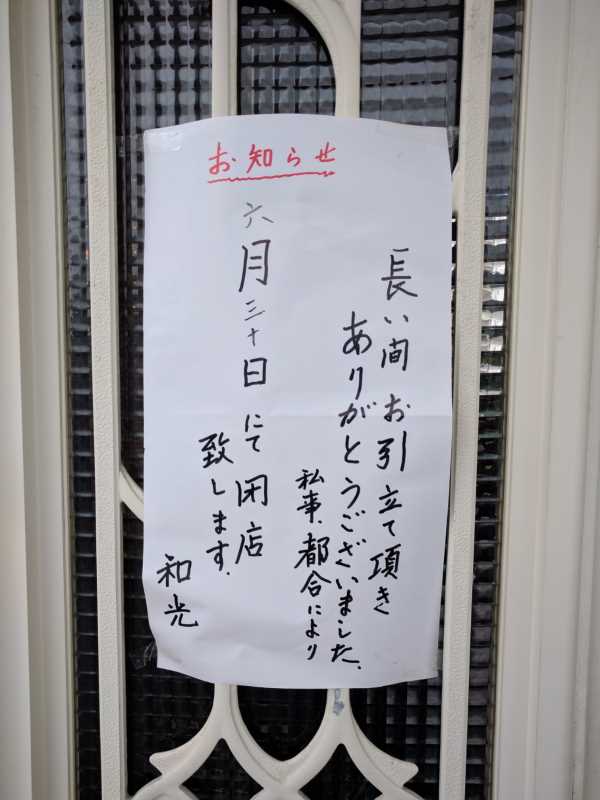This post is an attempt to recapture and preserve a few, short exchanges I had in Japan this summer. Interjecting my own descriptions and interpretations for context, I nonetheless hope to focus on what the individuals with whom I spoke had to say about their lives, the challenges they face, and their hope for the world they live in.
Done in by the Convenience Store
“Hardly anyone ever comes anymore after Family Mart opened across the street. Now everyone gets their coffee there: faster, cheaper. There’s no place for a kissa like this anymore”, the elderly proprietor of Wako laments. In between bittersweet puffs of a cheap cigarette, she continues “the shop’s been here since the 1960s. And I’ve been running it since the 70s.” The aged decor of the tiny establishment easily agrees with her claims – and it seems that almost nothing in the store has been renovated since then. Only the sickly, yellowish discoloring of the plastic furnishings – and the placement of a new-ish flat-screen adjacent to an ancient analog set – betrayed the fact that the 70s were now almost 50 years in the past. Most of the equipment sat on the shelf with thick crusts and stains. Apart from us, only one other person had come that day – a decades-long regular. She takes a final sigh, as I ask her to pose for a photograph. “I think it’s time to do something else.”
Enlarge

Playing His Own Rhythm
“Oh it’s you! Sorry I forgot your name, but you made such a deep impression! How are you? Where’s your friend from last year? Never mind, that can wait, let me play you a song!” Just like the year before, the young priest from Kumano Asuka Shrine was to be found playing a song on his flute in the prayer hall of the shrine, dressed in his yard work clothes, rubber boots, overalls and everything. Just like last year, he played an original tune, half-improvised, based not on some fixed principles or rules of aesthetics but his own emotions and mood. The piercing tune sent shivers racing down my spine. The song was beautiful, but markedly darker than what I remembered from the year before. “Your song was great, as always. How is your CD coming alone? I’d love to buy it,” I asked with genuine interest. “Not good. I don’t have the money nor the time right now.”
He looked me straight in the eye, and I saw the strain clear on his face. “It hasn’t been a good year. I feel all alone, and surrounded by enemies on all sides.” For a moment, I forgot that he was a Shinto priest, and would have believed it if he claimed to be a boardroom executive. “Ever since Kumano got listed as a World Heritage Site, everyone’s been trying to get a piece of pie. The shrine priest who served before my immediate predecessor, she made some big mistakes, getting us swallowed up by a lower ranked shrine. What a shame!” I was surprised at what he said.
Most shrines in Japan, like Buddhist temples, tend to be passed through the family. “I don’t come from a priest lineage. I studied this and do it because I love it. Just can’t imagine myself doing anything else. And I can’t imagine being anywhere else but this shrine, until the day I die.” The priest, who goes by his family name Nishi, was making some bold statements, considering he didn’t look a day over 35. I thanked him for playing his songs again, and offered to purchase some omamori to support his shrine. As he handed me the carefully made cloth-covered charms, he smiled and said “I’ll still be here, fighting. So come see me again next year!”.
I hope you enjoyed this adventure! If you’d like to stay up-to-date with my stories, please consider subscribing to my email list. I will not sell nor share your emails with anyone, and my notifications contain zero advertising.
[rainmaker_form id=”878″]



